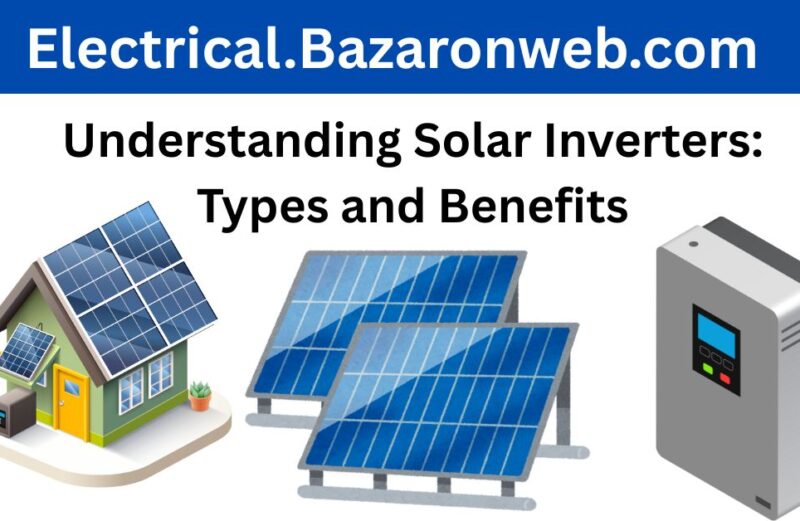By Sudeep Srivastava – Electrical Engineer with 25+ Years of EPC Experience
With the increasing adoption of solar power across residential and commercial sectors, one component remains at the heart of every installation—the solar inverter. As someone who has spent over two decades overseeing the design and installation of solar power plants in and around Lucknow, I’ve witnessed firsthand how choosing the right inverter can make or break system performance.
In this blog, I’ll break down the key types of solar inverters and their specific benefits based on my experience working on projects ranging from rooftop homes to large commercial establishments.
What Is a Solar Inverter?
A solar inverter is a device that converts the direct current (DC) generated by solar panels into alternating current (AC), which is used to power homes, offices, and industries. It’s often referred to as the brain of the solar system—monitoring output, protecting against faults, and optimizing energy yield.
Types of Solar Inverters
1. String Inverters
These are the most commonly used inverters for residential and small commercial systems.
- How It Works: Multiple solar panels are connected in a “string,” feeding into one centralized inverter.
- Best For: Locations with consistent sunlight and minimal shading.
- Benefits:
- Cost-effective and simple to maintain.
- Proven track record in Indian climates.
2. Microinverters
Each panel has its own inverter, allowing for panel-level optimization.
- Best For: Sites with partial shading or multiple roof orientations.
- Benefits:
- Improved efficiency through individual panel monitoring.
- Enhanced system reliability.
3. Hybrid Inverters
These are grid-tied inverters that also manage energy storage systems.
- Best For: Customers who want to integrate battery backup with grid connectivity.
- Benefits:
- Seamless energy management between solar, grid, and battery.
- Critical for areas with frequent power cuts—something common in some regions around Lucknow.
4. Central Inverters
Used in large-scale commercial or utility projects.
- Best For: High-capacity solar plants.
- Benefits:
- High efficiency at scale.
- Easier to manage in controlled environments.
Final Thoughts
Choosing the right solar inverter isn’t just a technical decision—it’s a strategic one. I always recommend assessing site conditions, energy needs, shading patterns, and future scalability before making a choice.
Whether you’re installing a 5 kW system in Gomti Nagar or a 500 kW commercial plant in Kanpur Road, understanding inverter options helps ensure long-term performance and return on investment.
If you’re planning a solar installation and want to get it right the first time, consult an EPC professional who understands not just the product—but the practical challenges of your local environment.
Written by Sudeep Srivastava
Electrical Engineer | EPC Consultant | Solar Plant Expert – Uttar Pradesh

